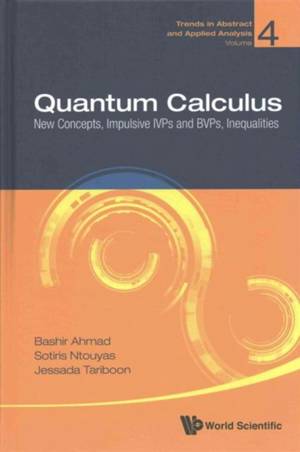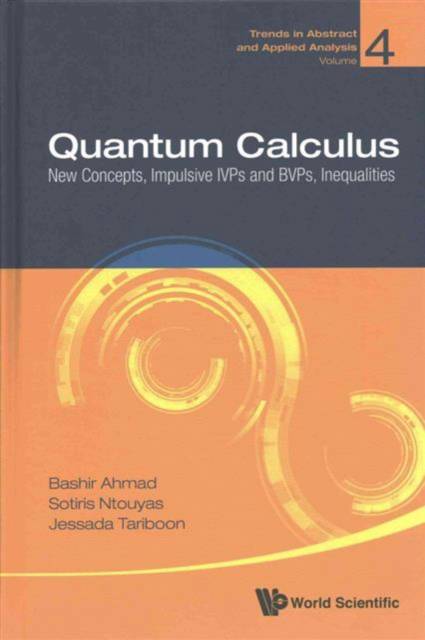
Je cadeautjes zeker op tijd in huis hebben voor de feestdagen? Kom langs in onze winkels en vind het perfecte geschenk!
- Afhalen na 1 uur in een winkel met voorraad
- Gratis thuislevering in België vanaf € 30
- Ruim aanbod met 7 miljoen producten
Je cadeautjes zeker op tijd in huis hebben voor de feestdagen? Kom langs in onze winkels en vind het perfecte geschenk!
- Afhalen na 1 uur in een winkel met voorraad
- Gratis thuislevering in België vanaf € 30
- Ruim aanbod met 7 miljoen producten
Zoeken
Quantum Calculus: New Concepts, Impulsive Ivps and Bvps, Inequalities
Bashir Ahmad, Sotiris K Ntouyas, Jessada Tariboon
€ 158,95
+ 317 punten
Omschrijving
The main objective of this book is to extend the scope of the q-calculus based on the definition of q-derivative [Jackson (1910)] to make it applicable to dense domains. As a matter of fact, Jackson's definition of q-derivative fails to work for impulse points while this situation does not arise for impulsive equations on q-time scales as the domains consist of isolated points covering the case of consecutive points. In precise terms, we study quantum calculus on finite intervals.In the first part, we discuss the concepts of qk-derivative and qk-integral, and establish their basic properties. As applications, we study initial and boundary value problems of impulsive qk-difference equations and inclusions equipped with different kinds of boundary conditions. We also transform some classical integral inequalities and develop some new integral inequalities for convex functions in the context of qk-calculus. In the second part, we develop fractional quantum calculus in relation to a new qk-shifting operator and establish some existence and qk uniqueness results for initial and boundary value problems of impulsive fractional qk-difference equations.
Specificaties
Betrokkenen
- Auteur(s):
- Uitgeverij:
Inhoud
- Aantal bladzijden:
- 288
- Taal:
- Engels
- Reeks:
- Reeksnummer:
- nr. 4
Eigenschappen
- Productcode (EAN):
- 9789813141520
- Verschijningsdatum:
- 28/07/2016
- Uitvoering:
- Hardcover
- Formaat:
- Genaaid
- Afmetingen:
- 155 mm x 231 mm
- Gewicht:
- 612 g

Alleen bij Standaard Boekhandel
+ 317 punten op je klantenkaart van Standaard Boekhandel
Beoordelingen
We publiceren alleen reviews die voldoen aan de voorwaarden voor reviews. Bekijk onze voorwaarden voor reviews.









